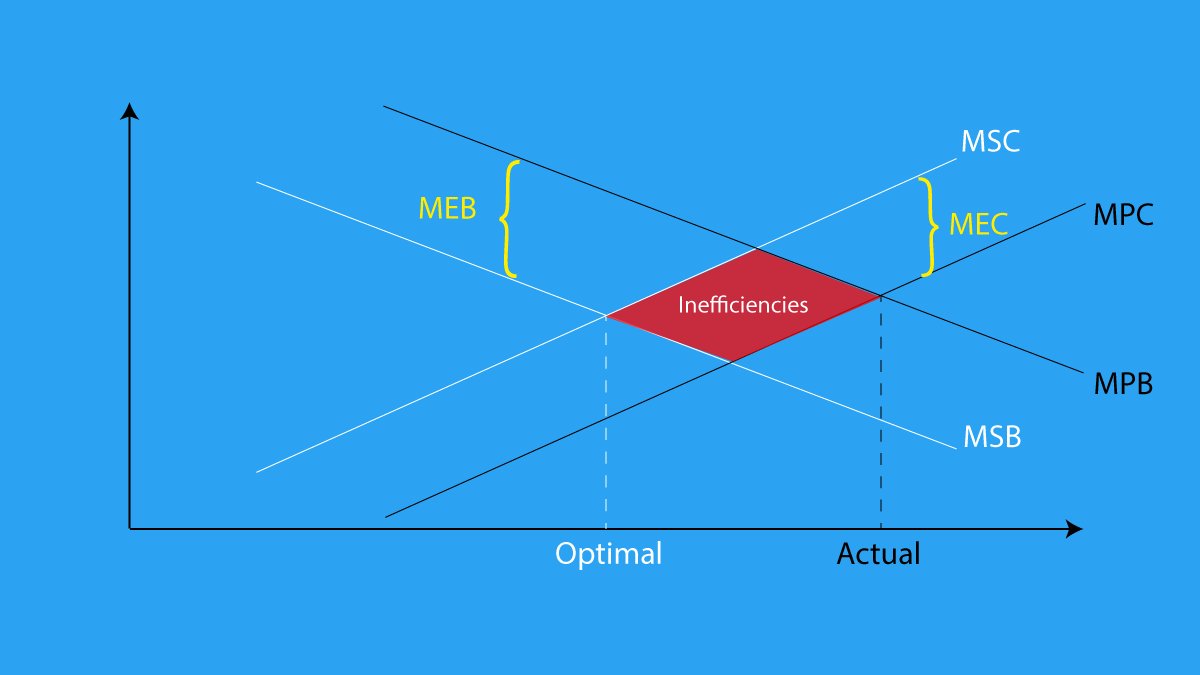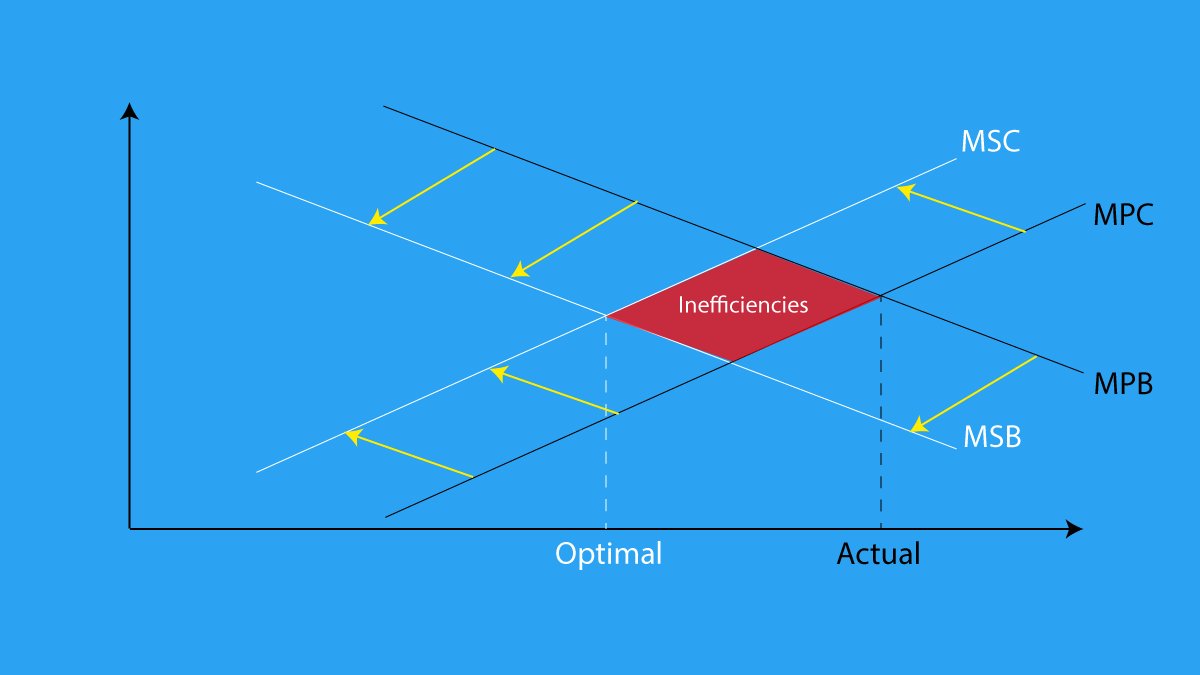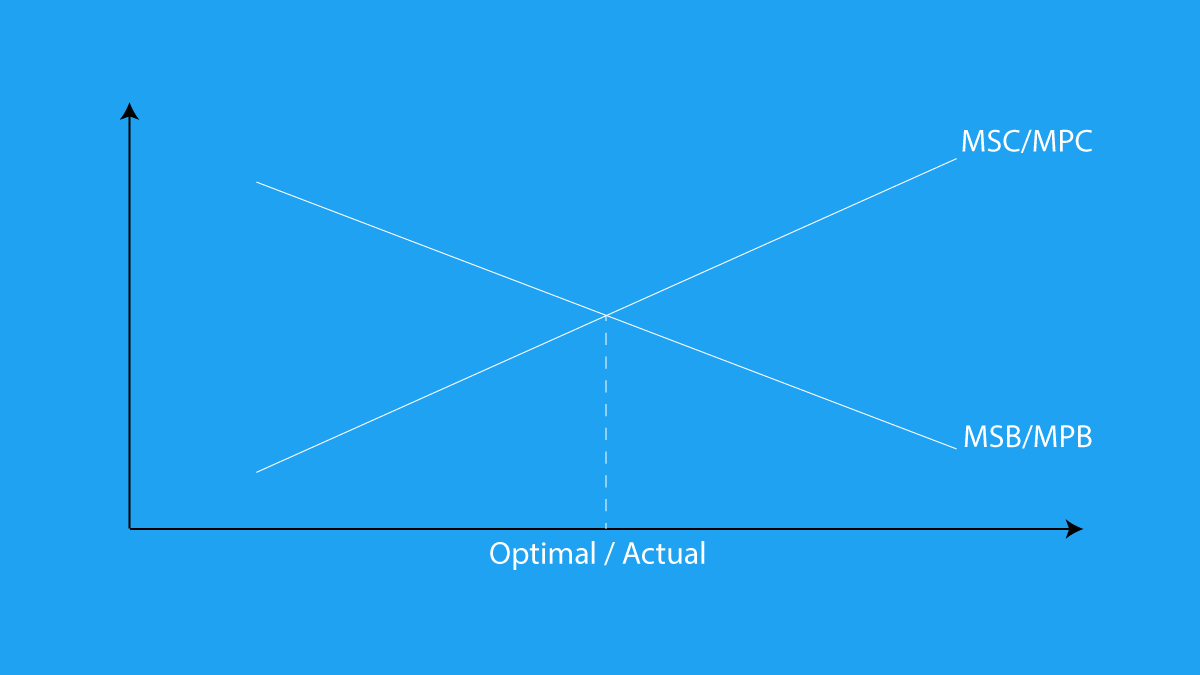That’s an odd thing to rebuke, considering it’s so easy to prove using STANDARD ECONOMIC MODELS. 1/19
In this thread, I show why markets are inherently inefficient & environmentally destructive. 3/19
Here I show why capitalism, including markets, are inherently undemocratic: they exclude all those affected by transactions other than the immediate buyer & seller. 5/19
In mainstream economics, there is a commonly used efficiency model based on the Pareto Principle that provides some insight as to the optimal/efficient quantity of goods & services that *should* be produced & consumed by an economy. 6/19
1) that externalities create inefficiencies &
2) the greater the externalities, the greater the inefficiencies 7/19








